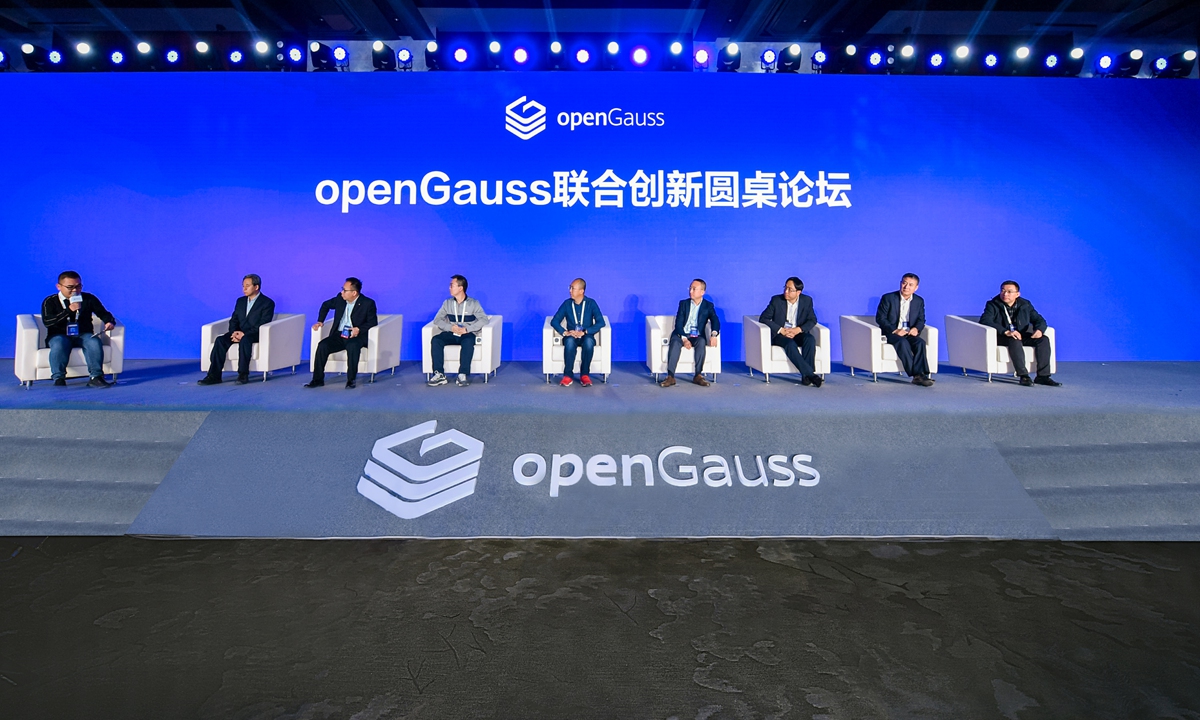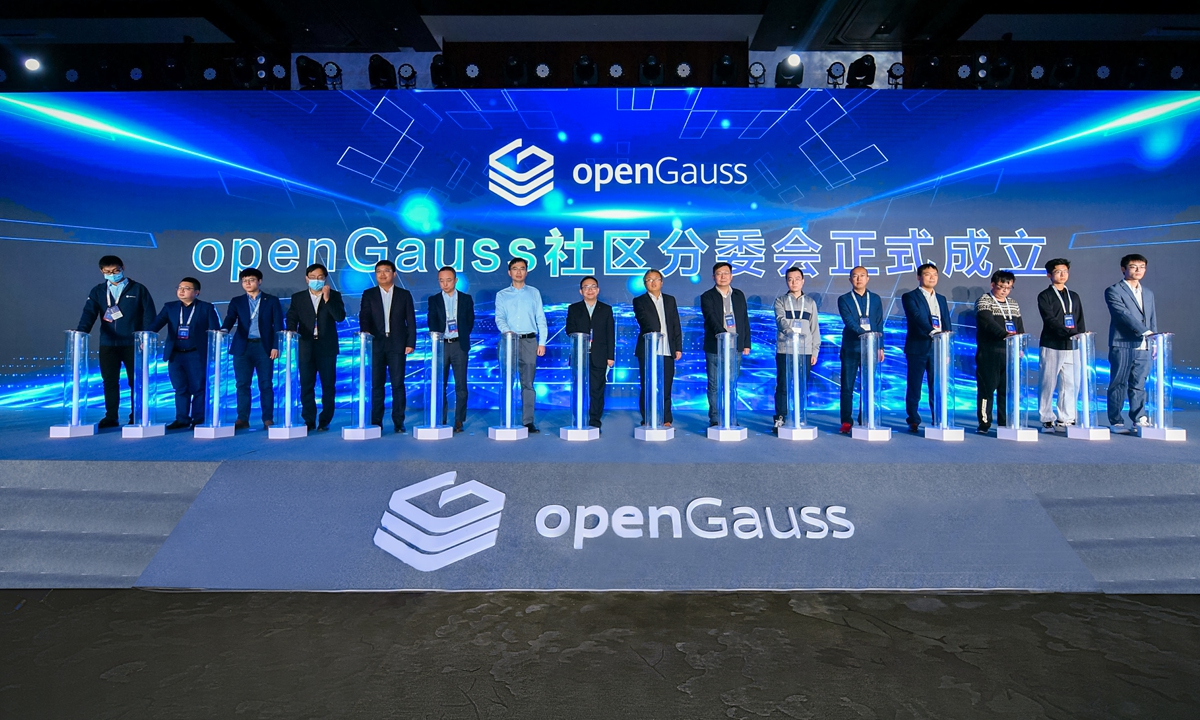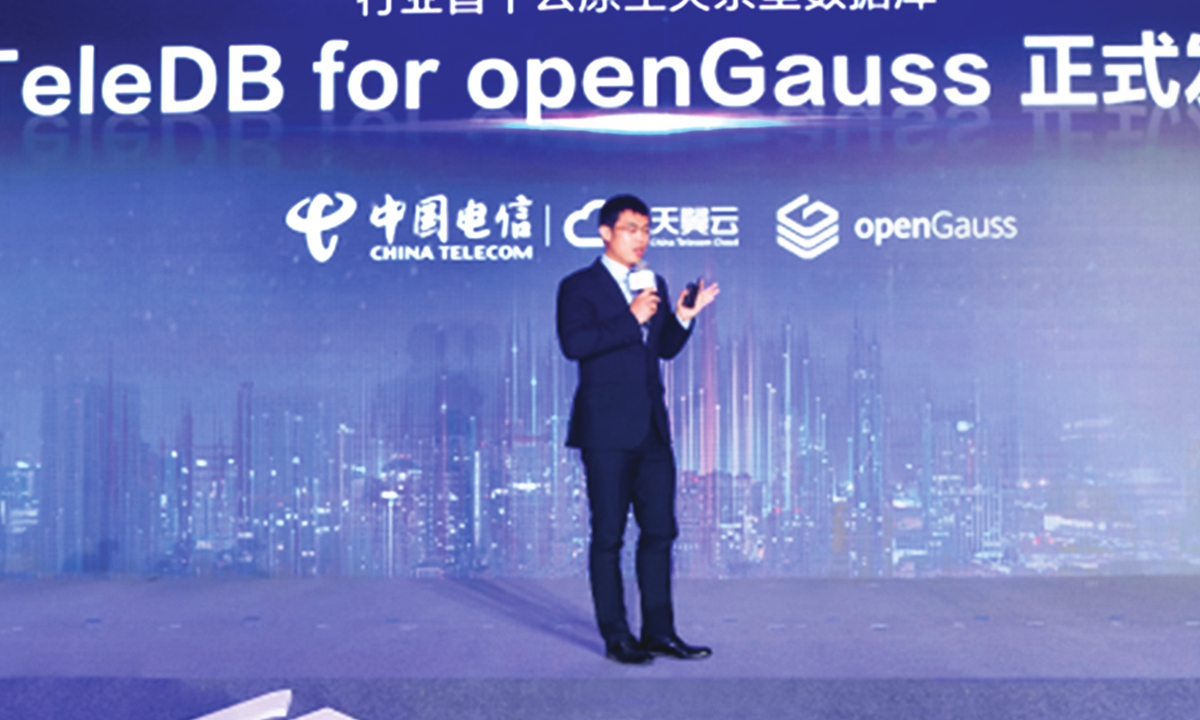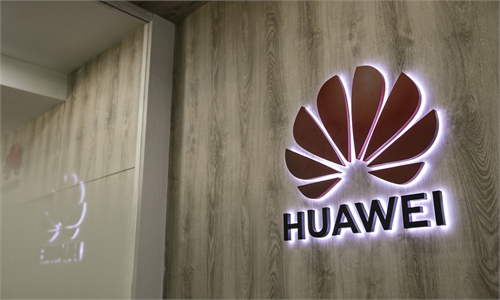SOURCE / PRESS RELEASE
The openGauss powers database industry forward through innovation

The openGauss summit 2021 is held in Beijing on December 28, 2021. Photo: Courtesy of Huawei
The 2021 openGauss Summit was held in Beijing on December 28, 2021 with the slogan "Gather Innovative Forces of Database in the Digital Era." This event is hosted by the openGauss community and co-hosted by 20 key database industry players. Collaborating with various industry partners, the event was designed to foster more technical innovation, ecosystem development, business success, open source collaboration, and talent training across the database industry.
At the summit, the openGauss Open Source Community Council and Technical Committee announced its new members and a subcommittee. Also in attendance was China Telecom, who released the industry's first cloud-native relational database TeleDB, and China Unicom, who kicked off the independently innovated China Unicom Database (CUDB). Both databases are developed based on openGauss.
Databases play an essential role in the digital economy, serving as fundamental software for data management and digital infrastructure. Database development demands a mechanism that brings together industry ecosystem players for long-term investment. Furthermore, it requires leading enterprises to open source code and continuously contribute to the ecosystem. With in-depth cooperation among industry players, universities, research institutions and users, as well as valuable applications and new ways of thinking, the database industry will be supercharged with new innovation.

The openGauss community technical committee upgrading ceremony Photo: Courtesy of Huawei
Databases serve as the data foundation for the digital era, involving complex interdisciplinary technologies. Based on open source and collaborative innovation, openGauss consolidates basic research, accelerates talent cultivation, and closely combines technology innovation with market applications through the integration of enterprises, universities, research institutions and users. With innovative forces from a range of sectors, openGauss represents a future-ready database.
Since going open-source on June 30, 2020, the openGauss community has attracted 100 major enterprises along the industrial value chain, covering the public administration, carrier, finance, energy, and manufacturing fields. The community has established 20 SIGs, attracted 2,500 developers from 558 cities in 81 countries and regions, and has seen over 500,000 downloads. Adhering to the concept of co-construction, sharing, and co-governance, openGauss aims to build an innovative open source community with enterprises, partners and developers. The openGauss community is continuously upgrading to create a better and stronger ecosystem.
Upgrading the openGauss community council
In September 2021, 18 organizations, including China Mobile, China Telecom, China Unicom, China Merchants Bank, Postal Savings Bank of China and Tsinghua University, established the openGauss Community Council. At this summit, the openGauss community council welcomed two new members. Now, the community council includes a wide array of members, including database vendors, enterprise users, universities, and research institutes. The council will focus on basic research, technological innovation, and industrial applications of databases to stimulate the development of the database industry.
The openGauss technical committee upgraded
As the leading body for the open source community, the technical committee determines the technical development roadmap. During this summit, 16 database technology experts from seven companies jointly formed a new technical committee, which will carry out technical innovation with all community members to enhance technical competitiveness.
The openGauss community subcommittee officially established
The new subcommittee will focus on database technologies, aiming to build a platform for teachers and university students to attract more partners to join the community, and push forward innovation, research,and education.

An official releases TeleDB for openGauss developed by China Telecom. Photo: Courtesy of Huawei
College developers can learn, practice, and contribute to the openGauss community in order to improve their technical capabilities and promote openGauss development.The subcommittee is led by the openGauss community and is jointly built with industry ecosystem partners. The subcommittee's first group of organizers include Huawei, Vastdata, Yunhe Enmo, and Shenzhou General Data Technology. The openGauss community sincerely welcomes more partners to join the initiative in the future.
Technological innovation is driving the openGauss community forward. Jiang Dayong, head of the openGauss Community Council, said that the openGauss open-source database will provide a safe, stable, efficient, and intelligent data management for the new era of digital infrastructure to accelerate enterprise digital transformation. As a technical innovation platform, openGauss is working towards the most innovative open-source community in the database field.
The community also serves an important role in harnessing new technologies. At this summit, China Telecom released the industry's first cloud-native relational database TeleDB for openGauss. It features high performance, solid reliability, robust security, and ultimate intelligence. Since March 2021, the two parties worked together in openGauss containerization, cloud autonomy, cloud security, and ecosystem compatibility.
Technical partners from Tsinghua University, Peking University, and other sectors will strengthen basic database research and carry out innovation in containerization, time series databases, and graph databases to meet user requirements and foster major industry applications.

